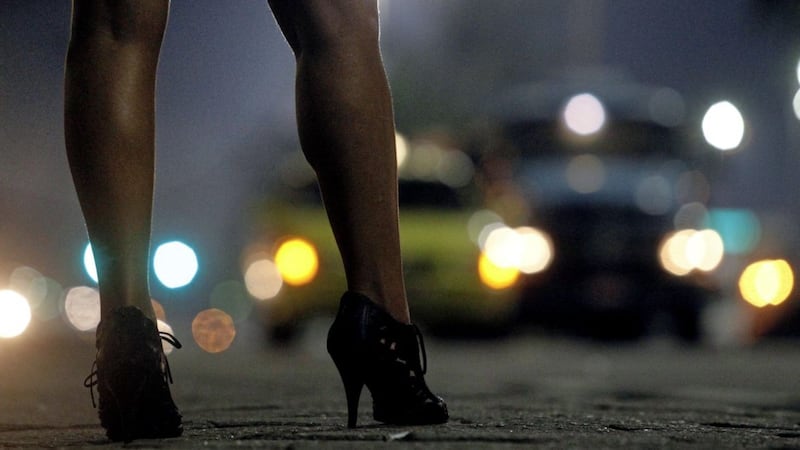A GROUP representing sex workers says the jailing of two women in Kildare proves Irish prostitution laws are not fit for purpose.
The two women, one of whom is pregnant, were jailed for nine months at Naas District Court last week.
Adrina Podaru (25) and Ana Tomascu (20) were living in Newbridge when it was raided in November last year.
The pair were charged with keeping "a brothel" and both women admitted offering sexual services for money.
Sex Workers Alliance Ireland (SWAI), which represents and supports sex workers, says the arrests prove that Ireland's laws, based on the 'Nordic Model', do not protect those selling sex.
"Jailing a pregnant, migrant sex worker yesterday shows we have not moved away from our dark past," a statement said.
"The facts of this case show the 2017 Sexual Offences Law is not fit for purpose.
"There were no clients present, very little money and no evidence of the workers being coerced into their job
"The change in law in 2017 was heralded as a law that would protect sex workers but we cannot understand how jailing two young migrant women will protect or rescue them in any way.
"Their crime, for working together for safety, is not a violent crime and there are no victims.
"Prior to the change in law in 2017, the maximum sentence for so-called brothel keeping was six months.
"When misinformed politicians and policymakers speak about how the law has decriminalised workers, they completely ignore that sex workers working together for safety risk increased penalties.
"The Nordic Model does not decriminalise sex workers. This is not justice gone wrong, this is how the law was designed to work.
"We in SWAI feel this is an egregious waste of Garda time and resources.
"When we fought last year to repeal the eighth amendment, we spoke of care and compassion for those who are pregnant.
"Are we really ready to stand over the jailing of a young pregnant migrant who was working together with another woman for safety?"
In Irish legislation, if two sex workers are working from one property, they face penalties for 'brothel keeping'.
Brothel-keeping laws have proved especially contentious as many workers (the majority of whom are women) would prefer to work in a shared property with a friend for safety reasons, however this practice would amount to a brothel under law and see those involved arrested.
"Sex workers want to be safe and we want to trust the state and its services in upholding our rights.
"Cases like this erode the already precarious trust that workers have in state services. Next year, there will be a three-year review of the 2017 Sexual Offences Act," a spokesperson said.
"The Sex Workers Alliance will be calling for full decriminalisation of sex workers in the review.
"It is rather chilling that we were assured by Gardai that there are more days of action planned – which means more surveillance and more opportunities to prosecute women."
Ireland adopted the "Nordic Model" on March 27 2017, criminalising the purchase of sex, not the selling of sex, which the government says is aimed at tackling trafficking and protecting vulnerable people in prostitution.
Statistics from UglyMugs.ie – an app where sex workers can confidentially report incidents of abuse and crime – state that since the law came into force, the number of incidents of abuse and crime being reported in the Republic has greatly increased.
They say crime against sex workers has increased 90 per cent, whereas violent crime specifically has increased 92 per cent.
Independent MEP Mick Wallace criticised the laws on social media, saying: "The 2017 Sexual Offences Bill was bad legislation.
"The government were listening to the wrong people. When will the government recognise the rights of sex workers and protect them?"
The Department of Justice has been approached for comment.



